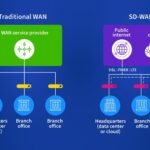Key Takeaways
- Personalized awards can significantly improve employee morale and productivity.
- Recognizing achievements through awards fosters a positive work culture.
- Customized awards make employees feel valued and appreciated.
Personalized awards significantly enhance employee morale and productivity by recognizing individual achievements and contributions. Tailored recognition shows appreciation, making employees feel valued and motivated. This boosts job satisfaction and encourages continued high performance. Personalized awards also strengthen the team’s sense of belonging and loyalty, fostering a positive work environment. By acknowledging specific efforts, companies can inspire employees to maintain and even exceed their performance, ultimately benefiting overall organizational success.
The Importance of Employee Recognition
Employee appreciation is essential to a positive and effective work environment, not merely a nice-to-have. Employee motivation and loyalty eventually increase when their efforts and devotion are acknowledged. A Gallup survey revealed that employees who receive regular recognition are more engaged, productive, and faithful to their employer. These personnel are likelier to stay with their companies and go the extra mile.
Recognition awards are one compelling way to do this. Such awards not only celebrate individual and team achievements but also foster a sense of belonging and motivation among employees. In doing so, they create a positive reinforcement loop that benefits both the employee and the organization.
Benefits of Personalized Awards
- Enhanced Motivation: When employees know their efforts will be recognized, they are naturally more motivated to work hard and perform well.
- Increased Loyalty: Personalized awards show that a company values employees as individuals, fostering a more profound sense of loyalty and attachment to the organization.
- Improved Performance: Publicly acknowledging achievements encourages the recipient and other team members to strive for excellence, leading to better overall performance and higher-quality work.
According to a Society for Human Resource Management study, 79% of employees cited a recognition program as one of the top reasons for staying with their current employer. This statistic underscores the importance of not only recognizing employees but also doing so meaningfully and personally. Personalized awards can be powerful tools for employee retention, directly impacting a company’s bottom line by reducing turnover costs.
Types of Personalized Awards
Various awards can be personalized to acknowledge employees’ unique accomplishments and contributions. Here are some popular options:
- Custom Plaques: Ideal for recognizing individual achievements, custom plaques can be tailored to include the recipient’s name, the reason for the award, and the date. These are often displayed proudly in offices or homes.
- Trophies: Trophies are great for celebrating team accomplishments or competition winners. They can be customized with engravings that highlight the specific achievement.
- Certificates: Certificates are an economical yet meaningful way to recognize achievements. They can be customized with the recipient’s details and are suitable for many recognitions, from employee of the month to milestone anniversaries.
- Medals: Medals are perfect for recognizing achievements in sporting events or physical challenges. They may be personalized with distinctive patterns and engravings to honor certain occasions or achievements.
Choosing the correct type of award can make the recognition feel even more special and tailored to the individual’s or team’s accomplishments. This level of personalization sends a strong message of appreciation and recognition from the employer.
Implementing an Awards Program
- Define Objectives: Clearly outline your aim with the awards program. Are you looking to boost morale, increase productivity, or reduce turnover? Your program’s emphasis and structure will be partly shaped by how well you define your objectives.
- Establish Criteria: To ensure fairness, set transparent criteria for earning awards. Make sure that these criteria are well-communicated and understood by all employees to avoid ambiguity or feelings of bias.
- Choose Awards: Select the type and number of awards that align with your company culture and the accomplishments you wish to recognize. The more personalized the award, the more meaningful it will be to the recipient.
- Communicate: Inform all employees about the awards program and how they can qualify. Transparency and clear communication are critical to the program’s success. Ensure that everyone understands the purpose and the criteria for receiving awards.
- Allocate Budget: Ensure a budget that sustainably supports the awards program. Budgeting for the program includes the cost of the awards and any events or ceremonies associated with presenting them.
Creating a new awards program can seem daunting, but the return on investment regarding employee satisfaction and productivity can be significant. You can refer to resources like the Forbes article on employee morale for further guidance. Following these steps, you can implement an awards program that recognizes achievements and motivates and engages your workforce.
Real-World Examples
Google and Zappos are two companies that have successfully implemented award programs that have led to significant results. Google’s extensive recognition programs have boosted employee morale and retention, while Zappos’s dynamic and inclusive programs include personalized awards for outstanding customer service and engaging events celebrating milestones and achievements. These examples demonstrate how customized awards can be integrated into a company’s culture to foster a positive and productive work environment. Organizations can learn from these success stories to develop their unique recognition programs.
Answering Common Questions
Q: What’s the best way to start a recognition program?
Creating a recognition program from scratch can be overwhelming, but starting with clear objectives and criteria can simplify the process. Engage employees in the initial phases to get their input and ensure the program resonates with them. Clear communication and transparency are also critical factors in the success of your recognition program.
Q: Are monetary rewards more effective than personalized awards?
While monetary rewards are appreciated, personalized awards often have a more lasting impact because they resonate emotionally and show a personal touch that financial rewards cannot. Employees will treasure the mementos and enduring memories created with personalized rewards.
Personalized recognition is vital in any successful awards program. For more insights, consider reading this detailed article on the importance of employee recognition. By answering these common questions, we hope to provide clarity and guidance for those looking to implement or improve their employee recognition programs.
Read More: Employee Background Screening Best Practices: Ensuring a Secure Workplace



